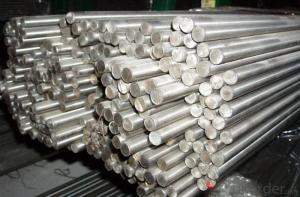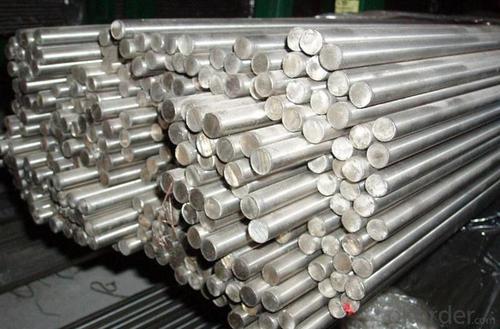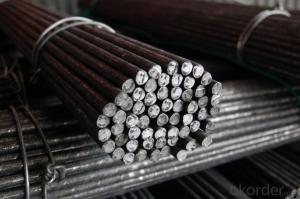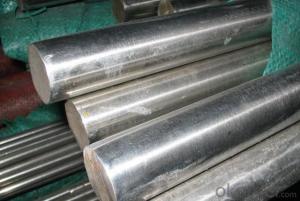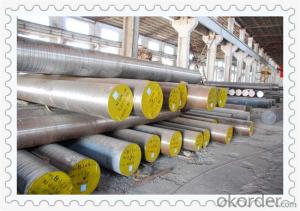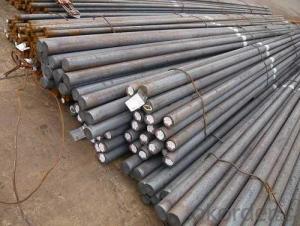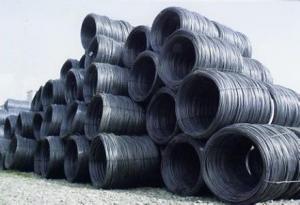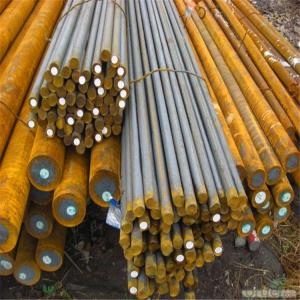100Cr6 Steel Hot Rolled Round Bar Steels
- Loading Port:
- Tianjin
- Payment Terms:
- TT OR LC
- Min Order Qty:
- 25 m.t.
- Supply Capability:
- 50000 m.t./month
OKorder Service Pledge
OKorder Financial Service
You Might Also Like
Specification
100Cr6 Steel Hot Rolled Round Bar Steels
Product Show:
Material | 52100/GCr15/100Cr6/SUJ2 | ||
Chemical Composition | Mechanical Properties(In Quenched & Tempered State) | ||
C | 0.95-1.05 | Tensile strength(MPA) | ---- |
Si | 0.15-0.35 | Yield strength (MPA) | -- |
Mn | 0.25-0.45 | Elongation(δ5/%) | -- |
Cr | 1.40-1.65 | Reduction in Area (ψ/%) | -- |
Mo | ≤0.10 | Impact (J) | -- |
P | ≤0.025 |
Hardness | HB170-207 HB207-229 HB270-390 HB229-285 HRC62-66 HRC61-66 HRC≈67 |
S | ≤0.025 | ||
Ni | ≤0.30 | ||
Cu | ≤0.25 | ||
Ni+Cu | ≤0.50 | ||
Competitive Advantage:
High wearing-resisting property
Good hardenability
High resistance to thermal properties.
Competitive price
Fast production leadtime
All the material are inspected with 3 times to meet the highly standards
Applications:
Bearing ring ,steel rolling mill ,machinery, 100Cr6 bearing steel ball is widely used in high-speed and
low-noise bearing, bicycle, motorcycle, automobile,bags, electronical Machine parts, engineering components
100Cr6 is a kind of common steel which is used to produce balls and rings of bearing. The product has characteristics of uniform-chemical composition, low percentage of harmful elements, high purity, well-distributed carbide, good surface quality. It also has characteristics of wide scope of plastic, stable heat-treatment quality, uniformed high hardness, high wear resistance , high strength of touching fatigue. It has excellent machining property afer spheroidize annealing.
Product Show:
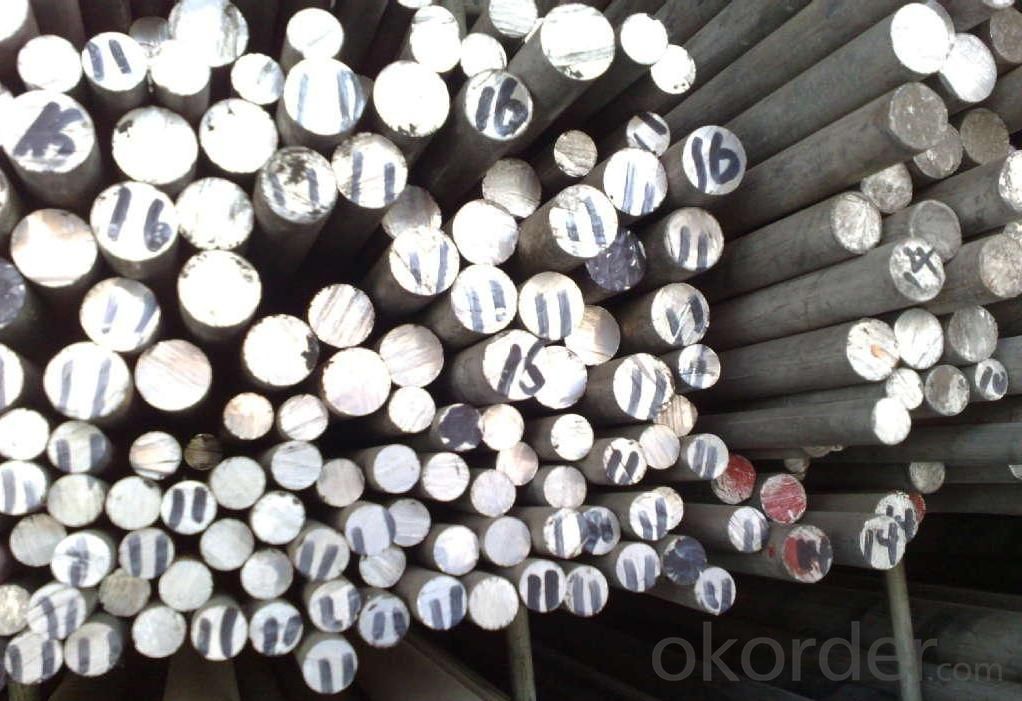
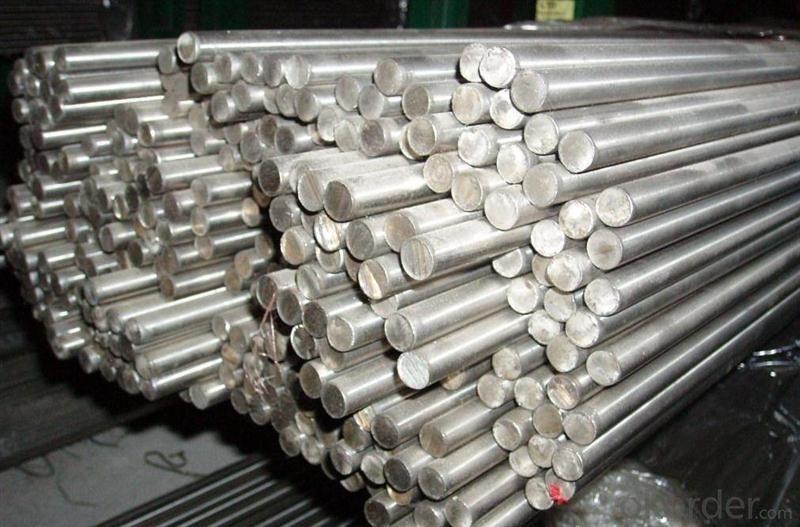
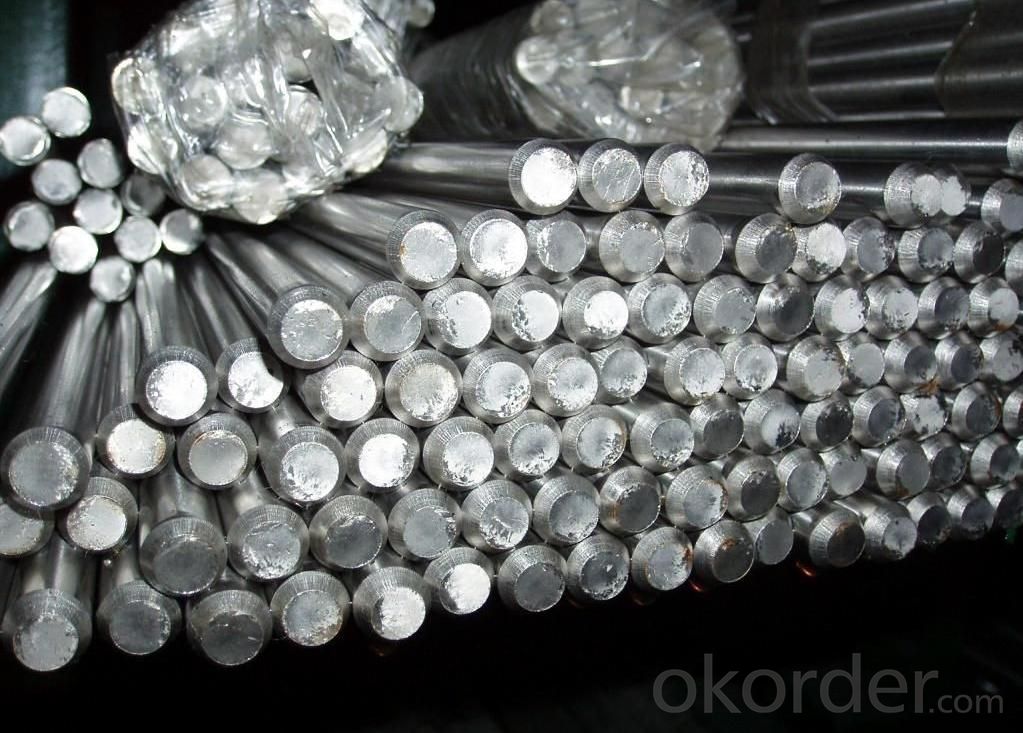
- Q: How does special steel perform in radiation shielding applications?
- Special steel is an excellent choice for radiation shielding applications due to its high density and ability to absorb and scatter radiation effectively. Its unique composition and properties allow it to provide a strong barrier against various types of radiation, ensuring the safety of individuals and equipment in radiation-prone environments.
- Q: What are the specific requirements for special steel used in the oil and gas sector?
- The primary focus of special steel requirements in the oil and gas sector lies in its ability to withstand harsh and demanding environments. Several key requirements include: 1. Corrosion Resistance: To ensure equipment longevity and reliability in corrosive environments caused by factors like moisture, chemicals, and high temperatures, special steel must exhibit excellent corrosion resistance. 2. High Strength: Special steel must possess high strength and toughness to endure extreme pressure, stress, and load conditions in oil and gas operations. This is crucial for maintaining the structural integrity of pipelines, offshore platforms, and drilling components. 3. Low Temperature Resistance: For oil and gas operations in extremely cold conditions, such as deep-sea exploration or Arctic regions, special steel must exhibit good low-temperature toughness to prevent brittle fracture and maintain mechanical properties. 4. Weldability: To facilitate ease of fabrication and construction, special steel should have good weldability in the oil and gas sector. This is vital for joining various components and pipelines, ensuring structural integrity and minimizing failure risk. 5. Hydrogen-Induced Cracking (HIC) Resistance: Special steel must resist hydrogen-induced cracking, which can occur in the presence of hydrogen sulfide gas commonly found in oil and gas environments. HIC can lead to catastrophic failures, making it essential for the steel to be designed to prevent this phenomenon. 6. Sour Service Resistance: In certain oil and gas fields, where corrosive gases like hydrogen sulfide are present, special steel must withstand sour service conditions. This requires high resistance to sulfide stress cracking and good mechanical properties under harsh conditions. 7. Compliance with Industry Standards: Special steel used in the oil and gas sector must meet industry-specific standards and specifications, such as those set by the American Petroleum Institute (API). This ensures quality, reliability, and safety. Overall, the requirements for special steel in the oil and gas sector aim to achieve durability, reliability, and safety in challenging operating environments. While specific applications may have varying requirements, these criteria are crucial for the smooth and efficient functioning of oil and gas operations.
- Q: Is special steel suitable for manufacturing surgical instruments?
- Yes, special steel is suitable for manufacturing surgical instruments. Special steel, also known as stainless steel, is commonly used in the production of surgical instruments due to its unique properties. It is highly resistant to corrosion, which is essential in a surgical setting where instruments come into contact with bodily fluids. Special steel is also durable and can withstand repeated sterilization processes without losing its functionality or structural integrity. Furthermore, it is non-magnetic, making it suitable for use in MRI and other medical imaging procedures. Overall, special steel provides the necessary qualities required for manufacturing surgical instruments, ensuring their reliability, longevity, and safety for medical professionals and patients alike.
- Q: What are the different surface treatment methods used for special steel?
- Some of the different surface treatment methods used for special steel include galvanizing, electroplating, powder coating, heat treatment, and nitriding. Galvanizing involves applying a protective zinc coating to prevent corrosion. Electroplating uses an electrical current to deposit a layer of metal onto the surface of the steel, improving its appearance and corrosion resistance. Powder coating involves spraying a dry powder onto the steel and then baking it to create a durable and attractive finish. Heat treatment involves subjecting the steel to high temperatures and then cooling it rapidly to alter its properties, such as hardness or toughness. Nitriding is a process of diffusing nitrogen into the surface of the steel to improve its hardness, wear resistance, and corrosion resistance. These surface treatment methods are used to enhance the performance, durability, and aesthetic appeal of special steel.
- Q: Can special steel be used for automotive engine components?
- Yes, special steel can be used for automotive engine components. Special steels, such as high-strength alloys or heat-resistant grades, are often utilized in critical engine parts like crankshafts, camshafts, connecting rods, valves, and pistons. These specialized steels offer enhanced strength, durability, and resistance to wear and high temperatures, ensuring reliable performance and longevity in demanding automotive engine applications.
- Q: What are the main applications of special steel in the power generation sector?
- Special steel is widely used in the power generation sector for various applications. One of the main applications is in turbine blades and rotors, where special steel's high strength, corrosion resistance, and resistance to high temperatures make it ideal for withstanding the demanding operating conditions. Special steel is also used in the construction of power plant boilers and heat exchangers, where its ability to withstand high pressure and temperature fluctuations ensures reliable and efficient operation. Additionally, special steel is employed in the manufacturing of power transmission equipment, such as transformers and electrical generators, due to its excellent electrical conductivity and magnetic properties. Overall, special steel plays a crucial role in the power generation sector by providing superior performance, durability, and efficiency in various critical components and systems.
- Q: What are the different magnetic grades of special steel?
- There are several different magnetic grades of special steel that are commonly used in various applications. Some of the most common magnetic grades include: 1. Soft Magnetic Materials: These grades of special steel are designed to have high magnetic permeability and low coercivity. They are used in applications where a high magnetic induction is required, such as in transformers, electric motors, and magnetic cores for electrical devices. 2. Martensitic Stainless Steels: These grades of special steel have a high magnetic permeability and are magnetic in their hardened state. They are commonly used in applications such as cutlery, tools, and certain automotive components. 3. Ferritic Stainless Steels: These grades of special steel have a lower magnetic permeability compared to martensitic stainless steels, but they are still magnetic. They are commonly used in applications such as automotive exhaust systems, decorative trim, and appliances. 4. Duplex Stainless Steels: These grades of special steel possess a mixed microstructure of austenite and ferrite, resulting in a magnetic response. They are known for their high corrosion resistance and are used in applications where both strength and corrosion resistance are required, such as in chemical processing equipment and offshore oil and gas platforms. 5. Austenitic Stainless Steels: These grades of special steel are non-magnetic in their annealed state. However, they can exhibit slight magnetism when cold worked or if they contain certain alloying elements. Austenitic stainless steels are widely used in various applications, such as in food processing equipment, architectural structures, and medical devices. It's important to note that the presence or absence of magnetism in special steel grades can vary depending on factors such as composition, heat treatment, and processing. Therefore, it is crucial to consider the specific requirements of a particular application when selecting the appropriate magnetic grade of special steel.
- Q: How does special steel perform in electrical applications?
- Special steel, known as electrical steel, is purposely created and produced to meet the specific needs of electrical applications. It displays outstanding magnetic properties, rendering it highly suitable for utilization in electrical machines and devices. A primary feature of special steel is its diminished electrical resistivity, enabling efficient current flow and minimizing energy losses in electrical circuits. This reduced resistivity is achieved through precise control of the steel's composition and microstructure. Moreover, special steel possesses a high magnetic permeability, allowing for easy magnetization and demagnetization. This characteristic is crucial for the effective functioning of electrical machines such as transformers, motors, and generators. Additionally, special steel exhibits low coercivity, making it susceptible to magnetization or demagnetization with relatively low levels of magnetic field strength. This attribute proves advantageous in applications requiring rapid and precise magnetic switching, like electric transformers. Furthermore, special steel demonstrates minimal hysteresis loss, which pertains to the dissipation of energy as heat during magnetization and demagnetization cycles. This quality guarantees minimal energy losses in electrical devices, ultimately improving overall efficiency. To summarize, special steel excels in electrical applications due to its low electrical resistivity, high magnetic permeability, low coercivity, and low hysteresis loss. These properties establish it as an ideal choice for a wide range of electrical machines and devices, enhancing their efficiency and reliability.
- Q: What is the hardness of special steel?
- The hardness of special steel can vary depending on its composition and specific heat treatment, but generally, special steel is known for its high hardness and excellent strength properties.
- Q: How is the hardness of special steel measured?
- The hardness of special steel is typically measured using methods such as Rockwell, Brinell, or Vickers hardness tests, which involve indenting the steel surface with a known force and measuring the resulting indentation size.
Send your message to us
100Cr6 Steel Hot Rolled Round Bar Steels
- Loading Port:
- Tianjin
- Payment Terms:
- TT OR LC
- Min Order Qty:
- 25 m.t.
- Supply Capability:
- 50000 m.t./month
OKorder Service Pledge
OKorder Financial Service
Similar products
Hot products
Hot Searches
Related keywords
